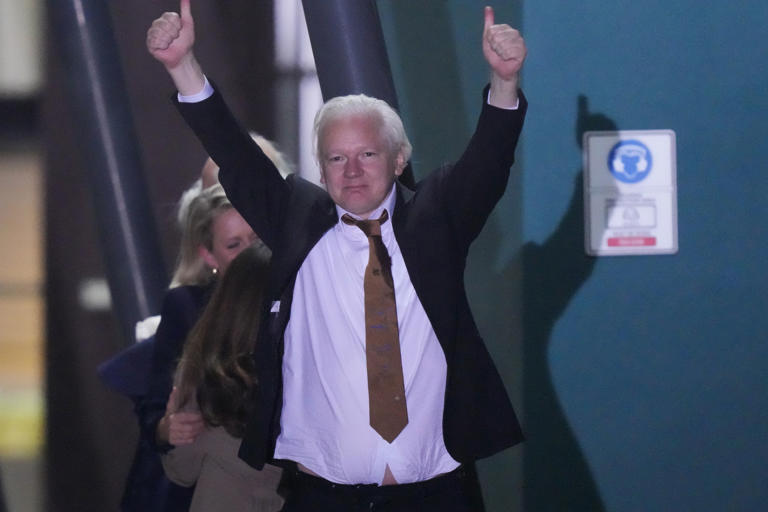Julian Assange’s release from legal purgatory marked the end of a tumultuous and globally scrutinized legal saga that spanned over a decade. As the founder of WikiLeaks, Assange had become a polarizing figure due to his organization’s role in publishing a vast trove of classified documents, which exposed sensitive government information and ignited debates on transparency and national security.
The saga began in 2010 when Assange faced allegations in Sweden related to sexual assault, prompting him to seek asylum in the Ecuadorian Embassy in London to avoid extradition. Throughout his seven-year confinement in the embassy, Assange continued to be a central figure in global discourse, hailed by supporters as a champion of free speech and transparency, and condemned by critics who viewed his actions as endangering national security and diplomatic relations.
In 2019, Ecuador revoked Assange’s asylum status, leading to his dramatic arrest by British authorities. This reignited longstanding legal battles, with the United States seeking Assange’s extradition on charges related to WikiLeaks’ dissemination of classified U.S. government documents. The case unfolded amid intense scrutiny and legal wrangling, with Assange’s defense arguing against extradition on grounds of potential human rights violations and the risk of facing severe penalties under U.S. law.
The turning point came about a year and a half ago when Assange’s legal team made a bold move, proposing to U.S. prosecutors that the case be dismissed altogether—a request emblematic of the high stakes involved, considering Assange’s global notoriety and the gravity of the charges against him. While dismissal was not feasible, this initial proposal set the stage for negotiations that ultimately led to an unexpected plea agreement.
The agreement, finalized after months of intense negotiations, allowed Assange to plead guilty to charges related to the unauthorized acquisition and publication of U.S. military secrets. Crucially, the deal ensured that Assange would avoid further imprisonment and extradition to the U.S., providing guarantees that he would not face additional time behind bars and could return to his homeland, Australia. It also stipulated that Assange would not set foot on U.S. soil, addressing concerns about potential repercussions and safeguarding his freedom.
On June 26, 2024, the conclusion of this lengthy legal battle played out in Saipan, a remote island in the Northern Mariana Islands, where Assange was formally declared a free man. The unexpected venue underscored the complexity and international dimensions of his case, offering a dramatic backdrop for the resolution of one of the most high-profile extradition battles in recent memory.
Assange’s release marked not only a personal milestone but also a significant moment in the ongoing global debate over press freedom, government transparency, and the legal boundaries of digital disclosures. His case prompted profound questions about the role of whistleblowers, the ethics of journalism in the digital age, and the responsibilities of governments to balance security concerns with public accountability.
As Julian Assange returned to Australia, his homeland, the repercussions of his case continued to resonate globally. It served as a landmark in legal history, leaving a lasting legacy on issues ranging from international extradition law to the rights of individuals and the responsibilities of governments in an era defined by unprecedented access to information and the challenges of safeguarding national security in a digital landscape.
